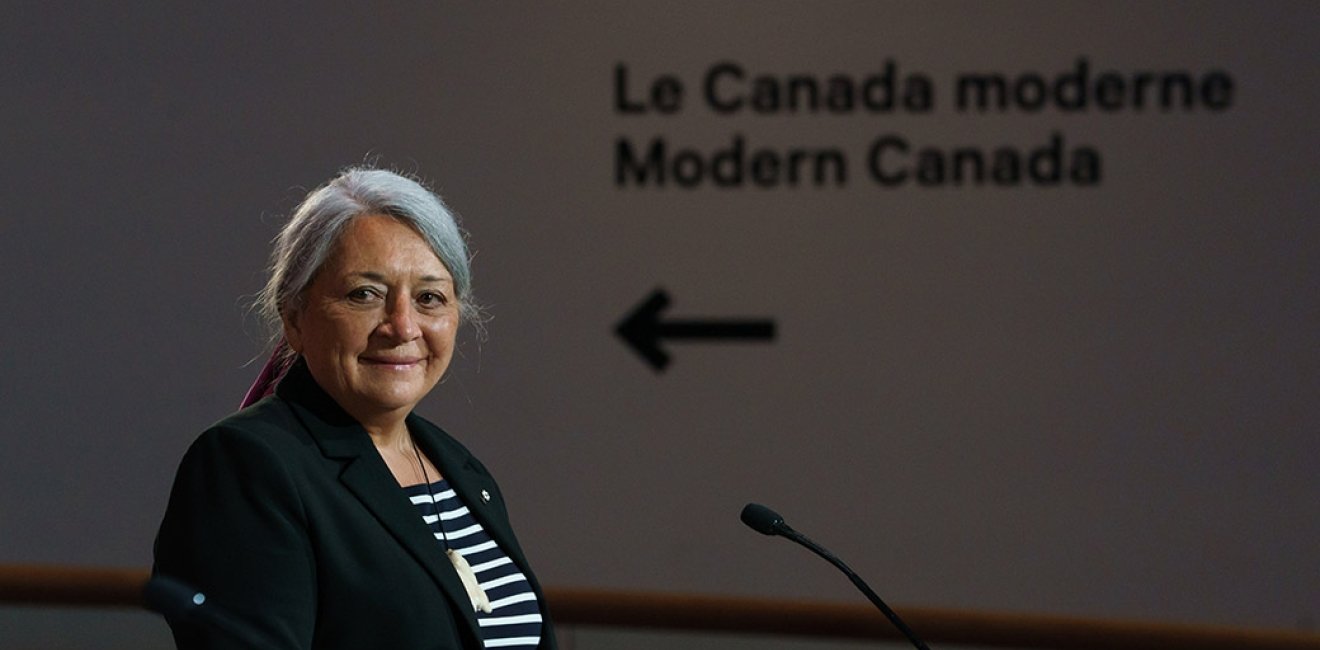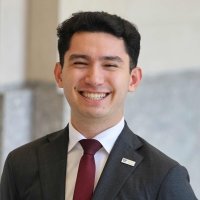Canada's Historic New Governor General
The eyes of the nation are on Mary Simon, a decorated diplomat and lifelong advocate for Indigenous communities, following her historic installation as the 30th governor general of Canada.
The eyes of the nation are on Mary Simon, a decorated diplomat and lifelong advocate for Indigenous communities, following her historic installation as the 30th governor general of Canada.

Queen Elizabeth II has a new representative in Ottawa. Mary Simon was officially installed as the 30th governor general and first Indigenous governor general of Canada on Monday, ending a six-month period that became the position’s longest vacancy in Canadian history. Her first speech as governor general underscored the historic importance of her nomination with an opening message of gratitude in Inuktitut and an acknowledgment of the reflective moment that the country is experiencing. A former diplomat in the Canadian Foreign Service and fierce advocate for Indigenous rights, Simon brings esteem and a lifetime of experience to the nation’s most senior viceregal office.
In the United States, the powers of the head of state and the head of government are combined into the office of the president. Canada’s constitutional monarchy divides these powers, with the prime minister controlling the government and the Canadian monarch, Queen Elizabeth II, possessing the powers of the sovereign. However, given that the Queen resides across the Atlantic Ocean in Buckingham Palace, she appoints a governor general to rule in her stead and carry out her duties as Canada’s head of state. The distinction between the responsibilities of the prime minister and those of the governor general is critical to the Canadian system of government: the prime minister leads Parliament in passing legislation and the governor general approves bills by granting them royal assent; the prime minister selects a minister of national defence to manage Canada’s security apparatus but the governor general serves as the nation’s Commander-In-Chief; the prime minister can be voted out of power when their party loses an election whereas the governor general traditionally serves at the Queen’s pleasure.
Simon’s nomination was met with widespread approval across Canada. In a time of social and economic instability, her resume of diplomatic experience and advocacy for marginalized communities are a welcome addition at Rideau Hall. She was the first Inuk ambassador in Canadian history, having served as Canada’s Ambassador of Circumpolar Affairs from 1994 to 2004 and its Ambassador to Denmark from 1999 to 2002. Following her stint in the Canadian Foreign Service, Simon was elected president of Inuit Tapiirit Kanatami, the largest Inuit organization in Canada, where she served a six-year term that ended in 2012. Simon is an Officer of both the Order of Canada and the National Order of Quebec, her home province, as well as an inductee in the International Women’s Forum Hall of Fame.
Despite her extensive qualifications, Simon’s nomination received pushback from francophone Canadians. The Office of the Commissioner of Official Languages launched a formal investigation into Simon after receiving over 400 complaints about her inability to speak French, one of Canada’s official languages as enshrined in the Official Languages Act. Born in Kangiqsualujjuaq, Nunavik in northern Quebec, Simon speaks English fluently in addition to her native Inuktitut but attended a day school that exclusively taught English during her childhood in the 1950s. Although the Governor General has asserted her commitment to learning French, the number of complaints filed with the Commissioner’s office neared 600 in the days leading up to her installation.
Simon also inherits an office shrouded in the controversy of her predecessor. She is Prime Minister Trudeau’s second nominee for governor general since the Liberals came to power in 2015. His first nominee, former astronaut Julie Payette, resigned in January this year following an independent investigation that found she had fostered a toxic and hostile work environment in Rideau Hall, including public humiliations and physical contact. Doubts about Payette’s qualifications that had been raised throughout her tenure resurfaced in the wake of the scandal. The Prime Minister’s Office was scrutinized for inadequately vetting Payette before recommending her for the position, especially considering Trudeau’s decision to forego appointing a panel of experts to assist with the selection process as his predecessor, Stephen Harper, did.
Whereas Julie Payette struggled with the bureaucratic responsibilities that came with being governor general, Simon has extensive experience working with the Canadian government both as an insider during her time as a diplomat and as an outsider through her advocacy. Simon is unlikely to encounter the same challenges that befell her predecessor, but the Payette scandal has left a stain on the governor general’s office and places pressure on Simon to revive the esteem of the position.
Simon’s largest and most immediate challenge will be uniting Canadians as the country emerges from a national moment of grief over the discovery of hundreds of unmarked graves at the sites of former residential schools across Canada. In 2016, the Canadian government accepted the conclusion of its truth and reconciliation commission that Canada’s residential school policy was a cultural genocide against Indigenous communities. The discovery is a solemn reminder of the legacy of the federal forced assimilation policy that lasted from 1874 to as late as 1996 and reopened painful wounds in the national psyche.
As a nonpartisan representative of the Crown, Mary Simon will not be able to directly influence Canada’s Indigenous policy. However, her Inuk background and extensive history of advocating for Indigenous rights make her an important figurehead as the nation grapples with a dark chapter in its history. Simon has frequently served as a champion for Inuit peoples in the national arena throughout her career; notably, she was invited to the House of Commons in 2008 to receive the federal government’s apology to residential school survivors on behalf of Canada’s Inuit community.
During her speech on Monday, Simon opined that “reconciliation is a way of life and requires work every day:” a mantra that she pledged to embody as she takes on her role at the heart of Canada’s constitutional monarchy. Her tact could face one of its first major undertakings as early as November this year, when some pundits are speculating a federal election may take place. If Prime Minister Trudeau does indeed choose to call an election to pursue a majority in the House of Commons, Simon will be responsible for granting a dissolution of Parliament and issuing a writ of election, and afterward inviting the leader of the party with the most seats to form a government.
Governor General Simon’s Installation is an instance of celebration and hope amid the troubling storm of COVID-19, government scandals, and national reckoning over the mistreatment of Indigenous peoples. The challenges of this moment are daunting but the opportunity for strong moral leadership is large as well. The position of governor general is unfamiliar to most in the United States, but as Canadians confront the wrongs of the country’s past and potentially vote for their future government in an election later this year, Simon will continue to make history.


The mission of the Wilson Center's Canada Institute is to raise the level of knowledge of Canada in the United States, particularly within the Washington, DC policy community. Research projects, initiatives, podcasts, and publications cover contemporary Canada, US-Canadian relations, North American political economy, and Canada's global role as it intersects with US national interests. Read more



